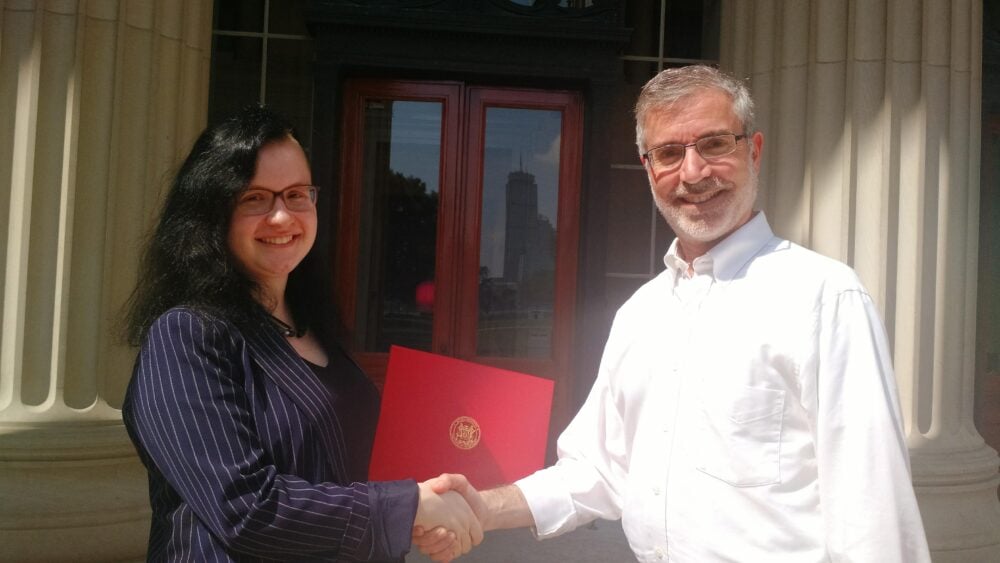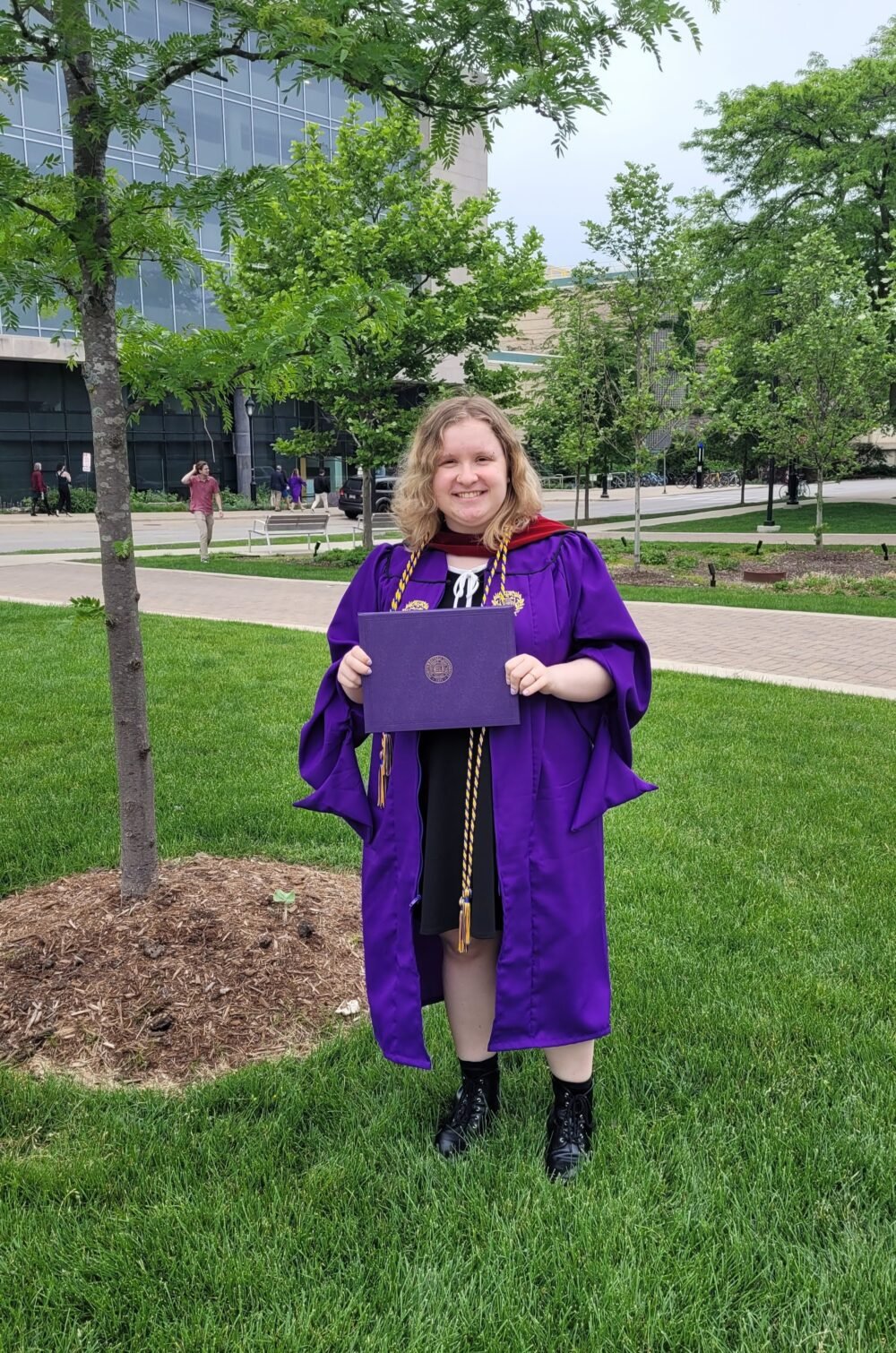I did not graduate on time by Yuliya K. '18
I did not graduate on time.
At first, I thought, I’m not one of those people. I was a good student. I defined myself by that quality more than I ever admitted. But I did, undeniably, fail to graduate on time.
It felt like a tragedy, then a failure.
Here’s a bit about me. I started senior year with two majors, a minor, and a 4.8 GPA and a habit of dropping all classes where it was clear I would get a B or lower.
How did I not graduate?
Freshman spring was the first period of crisis. I had earned less than two full classes worth of credit. I did not blog about it. Well, I started to, but every post inevitably ended with a positive conclusion, where, for the first time, there wasn’t one. Was it a transformative experience? Yes. Did I grow up? Yes. But it was too quick. I wasn’t equipped to deal with that many support services. I knew it was best to go on academic leave because I wasn’t doing any work, I couldn’t do any work. I stayed because whatever options I had for leave felt worse.
And despite everything going on that semester, I had to be a good student. I negotiated extensions way past reasonable deadlines. Along with my S^3 Dean and other support staff, I got 1.75 As, an OX, and a LateDrop. Ask me about MIT policies. I learned them all. It was easier than getting a B, or worse, failing.
I dropped many more classes since then, taken advantage of even more grading policies. I also went through intensive therapy. I changed almost everything about my life at MIT, including my major, but excluding my living group. I started multiple drafts about not dealing well with MIT, about almost transferring, about depression, anxiety, PTSD. But they were never good enough, always more academically appropriate than heartfelt, like other bloggers’ posts. That’s not the Imposter Syndrome talking here—I couldn’t not be the neutral, helpful blogger. And I couldn’t fit in the other me, the one who had trouble getting both in and out of bed, and being challenged not as much by psets as by the prospect of a shower.
Don’t get me wrong. I stand by everything I’ve written publicly. I loved and will continue to love my community and my extracurriculars and UROPs. I found priceless connections that I believe could happen nowhere but MIT.
I’m digressing onto a silver lining here again, but it’s essential to note. I am incredibly fortunate to have found my spot at MIT. I’m incredibly fortunate to have gotten a spot at MIT. But that gratitude doesn’t require avoiding addressing how the Institute pushes a culture of stress and intensity onto its fortunate members. Not one of the multitude of often amazing resources can fix that. I could get all the extensions and that still wouldn’t get me out of bed in the morning or stop me from engaging in the popular “who’s more hosed” game.
And then senior year came. I burned myself out pretty soon with everything involved in the job search, starting from so much Google Calendar-ing. The future seemed like a dark void. Like many of my peers, I had lost track of my passions somewhere along the way. Well, let me clarify that: people here are passionate, and I can still love what I do, but MIT often destroys the spark of excitement that got us through high school to here. We become “jaded” is the official term.
In the fall of senior year, I got my first D in a mostly-freshman GIR. I just couldn’t get out of bed and my attendance suffered, and I had a hard time concentrating on studying what I’d missed. I passed the first two exams by a narrow margin, but when finals week and all the stress associated with it came, my concentration tanked and I felt fortunate to get a D. In fact, I hadn’t been that happy about a grade since my first A freshman year. That D grade felt exhilarating—I wouldn’t have to retake the GIR! D’s get degrees!
Feeling refreshed at the start of the spring semester, I thought again that I could do it all—the classes, the job, the extracurriculars, the living group activities, the friends (the latter always the priority). But anxiety hit hard, especially now that I was so close to leaving but no closer to whatever happened after. I would start 10+ page essays the night before their afternoon due date (that is, if I was capable of starting them at all). But worst of all was my attendance. The one class I had to pass to graduate, the final elective for my major, was at 9:30am, and I couldn’t get out of bed on time.
I wasn’t super worried about the lack of attendance—after all, the final paper was due 80% of the grade. But my professor didn’t think so, and in the middle of the last week, finals week, she emailed me saying I was getting an F. She said she was “very disappointed” in me. I couldn’t disagree. When everyone started celebrating graduation, I was just coming to terms with not having one. I had gone from two majors to none in one semester.
So what next? Well, from here on the post does have a happy ending. I couldn’t write it until I had one because it was too painful to still be a non-graduate, to not know if I could graduate.
I registered for an elective at the Harvard Summer School. I took out my first personal loan in order to do that, almost doubling my student debt, but it was so worth it—I was solving the problem all on my own. And, ironically, I was graduating out of Harvard, once a place I had dreamt to attend, that is, until I fell in love with Nerd Paradise.
The Harvard elective was a most wonderful course, definitely in my top 5 undergrad classes. It changed my view of the world, as a great class should. With the pressure of on-time graduation gone, I was completing assignments on time and in record time. I was working full-time and taking a semester-long course in half the time, but I was doing it all on my own, removed from the context of an educational institution, and I loved it.
I’ve also come to terms with not graduating on time. I graduated from MIT in September 2018 and I am still proud. I am also still part of the Class of 2018, but either way, the date does not define me or my quality as a student. In fact, my quality as a student should not define me at all. What matters is all the wonderful experiences with people and research I had while at MIT. What matters is that I graduated eventually, and that’s still a big deal. It’s a cause for celebration, and I’m celebrating with this post.
Over the weekend, I graduated with honors with a master of science degree in Science, Health, and Environment journalism from Medill School at Northwestern University. I have a job as a content update editor with Health.com, one of the biggest online health magazines, and a writing internship at one of the 33 Alzheimer’s Disease Research Centers funded by the U.S. National Institute on Aging. I’ve published a story in Discover Magazine, among other venues. And I live with my husband, the love of my life, in Chicago. He was instrumental in helping me find and get through Harvard Summer School, and Medill, and so much more.
In all my grad school applications, I explained why I had an F on my transcript. In fact, when one school asked in their main essay to describe a “moment of truth,” I focused entirely on the time I had to find a way out of that F. And the admissions officers and faculty understood: Mental health is important.
MIT is hard, and it’s ok to struggle. Everyone does, at some point. And it’s ok to take time off, or take extra time—the timeline does not define you or your competence as a human being. And you’re not alone in deviating from it.
I did not graduate on time. I am not a failure.

When I finished the Harvard class, I asked Stu Schmill to stage a mini-graduation with me. Here he is shaking my hand while I hold up an MIT diploma.

Graduating from Medill